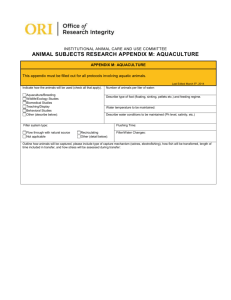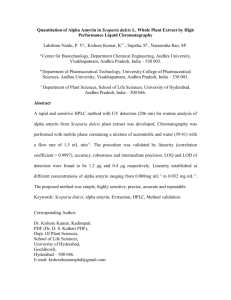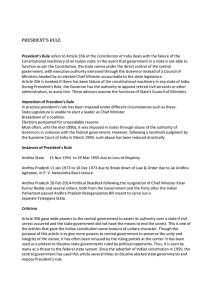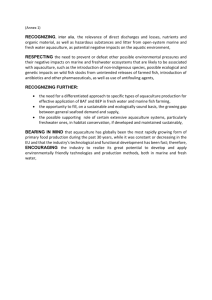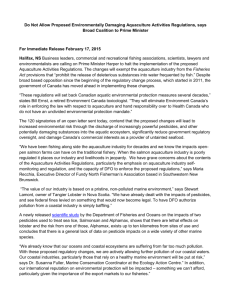Degree obtained - Knowledge Mission
advertisement
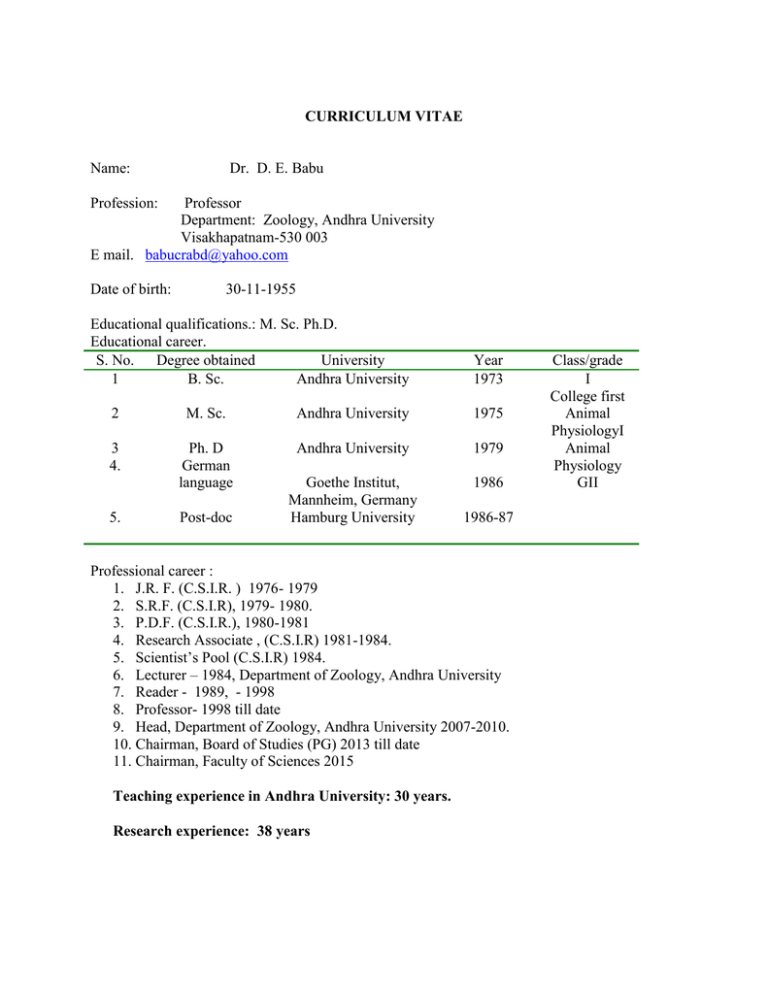
CURRICULUM VITAE Name: Dr. D. E. Babu Profession: Professor Department: Zoology, Andhra University Visakhapatnam-530 003 E mail. babucrabd@yahoo.com Date of birth: 30-11-1955 Educational qualifications.: M. Sc. Ph.D. Educational career. S. No. Degree obtained University 1 B. Sc. Andhra University Year 1973 2 M. Sc. Andhra University 1975 3 4. Ph. D German language Andhra University 1979 Goethe Institut, Mannheim, Germany Hamburg University 1986 5. Post-doc 1986-87 Professional career : 1. J.R. F. (C.S.I.R. ) 1976- 1979 2. S.R.F. (C.S.I.R), 1979- 1980. 3. P.D.F. (C.S.I.R.), 1980-1981 4. Research Associate , (C.S.I.R) 1981-1984. 5. Scientist’s Pool (C.S.I.R) 1984. 6. Lecturer – 1984, Department of Zoology, Andhra University 7. Reader - 1989, - 1998 8. Professor- 1998 till date 9. Head, Department of Zoology, Andhra University 2007-2010. 10. Chairman, Board of Studies (PG) 2013 till date 11. Chairman, Faculty of Sciences 2015 Teaching experience in Andhra University: 30 years. Research experience: 38 years Class/grade I College first Animal PhysiologyI Animal Physiology GII Areas of Research specializations Biodiversity, Fisheries, Mangrove Ecology and Mangrove Fisheries, Aquaculture. Physiology of Marine organisms, Endocrinology Environmental impacts including Environmental pollution on human health and Animal diversity Tribal populations and common diseases and causes. Research Contribution: (i). Books. (ii). Research papers. (iii). Popular articles. 6 56 ~ 30 Number of research degrees awarded under my guidance. M.Phil. : 21 Ph. D. : 16 Masters dissertations : > 70, International: 3 (Sweden) : Important contributions in science i. Discovery of a moult (growth) acceleratory hormone in crustaceans, University of Bonn, Germany, 1994. ii. Establishing a one year PG Diploma course on “Prawn and crab Farming and Management” 1994 onwards. iii. Establishment of an Aquaculture Shore laboratory with facilities of running seawater and aeration for commercial operations (1996). iv. Development of Mud crab Culture Technology for the first time (1995). v. Development of Mud crab Hatchery Technology for the first time (2003). vi. Establishment of a two year M. Sc. Course in Industrial Fisheries, 2002. vii. Establishment of a two year M. Sc. Course in Aquaculture, 2002. AWARDS/MEMBERSHIPS i. ii. iii. DAAD fellowship under Indo-German Academic Exchange Service, 1986-87. (International Marine Biology Labs, Helgoland, Biologische Anstalt Helgoland, Meerestation, Helgoland) DAAD Re-invitation, visiting scientist, Germany, 1993-94, University of Bonn, Germany. vi. vii. Received Best Scientist award, National Symposium on Aquaculture for 2000 A.D., Madurai Kamaraj Univeristy, Madurai, 1994. Panel of expert on shrimp diseases-NABARD head quarters, Mumbai, November 1994. Panel of Expert “ Candidate Species for Aquaculture other than shrimp”, MPEDA, Min. Commerce, Govt. India (1995). Executive member, Indian Society for Comparative Animal Physiology (ISCAP). Life member, Indian Science Congress Association. viii. Member Andhra Pradesh Academy of Sciences. ix. Life Member, Marine Biological Association of India. x. Life Member, Indian Association of Aquatic Biology. xi. Member New York Academy of Sciences. xii. Member, Crustacean Society, USA. xiii. Dr. Belsare Gold medal, Zoological Society of India (ZSI), 2005. xiv. Research Board of Advisers, ‘The American Biographical Institute’. xv. Fellow of the Zoological Society of India (FZSI) xvi. Advisory board member, Idira Gandhi Zoological Park, Visakhapatnam, 20092014. xvii. Consultant – UNDP Project “UNDP-GEF-GOI-GOAP- EGREE Project on Mainstreaming Coastal and Marine Biodiversity . iv. v. Ph. D. Degrees awarded C. Manjulatha Studies on moulting, growth, autotomy and regeneration in the estuarine mud crabs Scylla serrata and Scylla oceanica 1990 1992 2. Y. Arunadevi Studies on moulting, growth and reproductive behaviour of the fresh water prawns Macrobrachium malcolmsonii and M.rosenbergii 1994 1996 3. K. Rama Rao 1994 1997 4. D.V.S.N.Raju Studies on feeding behaviour, oxygen requirements and growth of larval and adult Penaeus monodon The fishery, Reproductive and larval behavior of the mud crabs Scylla serrata and Scylla oceanica 1997 2003 5. M. Ratna Raju Studies on Rock lobsters from Andhra Pradesh coast. 1996 2001 6. A. Vinayaka Rao Studies on the fish and fishery of Thandava Reservoir, Andhra Pradesh, India. 1996 2003 7. B. Krishna 1998 2003 8. A.V.V. Subrahmanyes wara Rao 1998 2004 9. T. Samuel David Raj Manas Kumar Sinha Studies on the mangrove crabs of Gautami-Godavari estuary, Andhra Pradesh India. Zooplankton Spatial and Temporal Distribution in the Mangrove Habitat of Godavari Estuary with particular reference to the Role of Organic Carbon and Nitrogen, based on Stable Isotopic Studies The Reproductive behaviour of the mud crab, Scylla oceanica (Dana) Studies on the culture of giant freshwater prawn, Macrobrachium rosenbergii (de Man) Studies on the water quality management, larval development 1999 2005 1998 2005 2002 2005 1. 10. 11 Sheik Khaseem 12 D. Padmavathi 13 Tsegeye Gadisa Belachew 14 P. Srinivas 15. R. Praveen \ 16. K. Sarada and mud crab hatchery technology Fish faunal diversity of Gautami Godavari esturary and mangrove fed fishery off Kakinada coast, AP Studies on the population ecology of pest Rodents in some selected Agricultural fields of South-west Ethiopia. Nutritional and Environmental studies on the health and Longevity of the tribal populations of Paderu division, Visakhapatnam district, A. P. India. Freshwater fish diversity and fishery of river Godavari, Andhra Pradesh, India. Studies on cadmium toxicity on length weight relationship, Fecundity, Blood glucose levels and Biochemical composition in four species of fish, Channa punctatus, Channa striatus, Clarias dussumeri and Heteropneustes fossilis. 2006 2009 2008 2011 2008 2011 2006 2015 2008 2015 Registered during the year 1988 Complete d during the year 1989 1988 1989 1989 1990 1989 1991 1988 1992 No. of students awarded M. Phil. Courses Name Title of Dissertation M. Phil. G. Talpasai (1) Studies on autotomy and regeneration in the mud crabs, Scylla serrata & Scylla oceanica. Studies on the feeding mechanism, structure of the integument in Clibanarius longitarsus. Studies on the functional organisation of the mouthparts, feeding mechanism and structure of the digestive tract in Clibanarius virens. Growth patterns of the fresh water prawn, Macrobrachium malcolmsonii fed on artificial diet Studies on the isopod, Corralina 2 C. Manjulatha 3 V. Sailaja 4 D. Uma 5 S.B. Shaik 6 C. Varalakshmi 7 T. Udayabhanu 8 K. Kirankumari 9 K. Nirmala 10 B. Krishna 11 12 T. Samuel David Raj K. Sarada 13 S.K. Khasim 14 S. Dayamadhuri 15 16 V. Narayana Rao P. Vijayakumar 17 P. Srinivas 18 T. Sreedhar 19. K. V. Vijaykumar 20. R. Murali Rao Dana 1852, new species from the river Godavari. Structure of the integument in crabs Studies on the oxygen requirements in mud crab culture Oxygen requirements of the fresh water prawn Macrobrachium malcolmsonii. The reproductive behavior of the freshwater prawn, Macrobrachium rosenbergii (De Man, 1879 Cuticle composition of commercial crustaceans The nutritive value of commercial crustaceans Tissue accumulation and influence of copper on calcium metabolism in the edible mud crab, Scylla oceanica . Studies on the impact of industrial pollution on the bio-accumulation and energy budget in edible fish and shellfish Nutritive value of finfish and shellfish Studies on dry fish landings and usage in Andhra Pradesh Studies on Tuna fishery off Visakhapatnam coast Studies on the impact of infective and deficient diseases on the height-weight relationships of tribal populations of Visakhapatnam Agency. Water quality parameters, fish faunal diversity and production of Madduvalasa Reservoir, Srikakulam, Andhra Pradesh. Faunal diversity of North coastal Andhra pradesh Fish diversty and fishery of Raiwada Reservoir 1994 1995 1994 1995 1996 1998 1996 1997 1996 1997 1996 1997 2000 2002 2006 2007 2008 2009 2008 2010 2009 2010 2010 2012 2011 2013 2011 2013 T. Nandakishore 21. 22. K. Balaji Effect of salinity, season and stocking density on nitrogen metabolism and production in shrimp culture. 2012 2014 Studies on the diversity and behaviour of wild life fauna of East and West Godavari districts, Andhra Pradesh India. 2014 2015 Research Projects. S. No. Title of the Project 1 Name of the funding Agency Duration Year of the Project Sanction ed amount Studies on Autotomy, UGC minor Regeneration and growth in mud Research crabs, Scylla serrata & S. oceanica Project 1 year 19881989 Rs. 15,000/- 2 Studies on the Reproductive and Larval behavior of the mud crabs Scylla serrata and S. oceanica. UGC Major Research Project 4 years 19961999 Rs. 5.51 lakhs. 3. Studies on the development of Technology for mud crab larval hatchery. DBT R&D Research Project 3½ years 19961999 Rs. 20 lakhs 4 Studies on Fishery and CEC, Aquaculture in the vicinity of Sweden Godavari mangroves- Mangrove degradation and Resilience.- a case study. 1 year 20002002 Rs. 2.5 lakhs 5. Larval development in Rock lobsters DST Major Research Project 3 years 20002003 16.204 lakhs 6. Mud crab hatchery technology and crablet production DBT major Research Project 3 1/2 years 20002004 15 lakhs 7 Dry fish landings and usage in Aquaculture in India 8 Prevalence of Epidemic and Endemic diseases in Tribal populations of Andhra Pradesh 9 UNDP-GEF-GOI-GOAP- EGREE Project on Mainstreaming Coastal and Marine Biodiversity – Aquaculture Sector Specialist Swedish International Development Agency (SIDA) ITDA 3 years 20072010 2.5 lakhs 2 years 20082010 2.94 lakhs UNDP One year 2014 4.99 lakhs Symposia/Seminars conducted 1. Organising Secretary, 12th All India Symposium on Comparative Animal Physiology and the Marine world, Andhra University, Visakhapatnam, March, 1990. 2. One day Seminar on Emerging Trends in Aquaculture, 3rd March 1995 3. Organization Committee member (OMC) International summit on Aquaculture 2016, Malaysia. ACTED AS CHAIRPERSON International 1. INCO-DC final workshop on “Assessment of Mangrove Degradation and Resillence in the Indian sub continent – the cases of Godavary estuary and south west of Sri Lanka. 21st – 25th October 2002, French Institute of Pondichery – 2. International Symposium on “Environmental Impacts, Health Implications and Therapeutic Approaches” (ISEHT-2012), 15-17th July 2012, Vikram Simhapuri University, Nellore. 3. International Symposium on “Global Summit on “Emerging Science and Technologies: Impact on Environment & Human Health,” (ESTIEH-2014), 01-03 August 2014 –” (ISEHT2014), Vikram Simhapuri University, Nellore. National 4. 12th All India Symposium on Comparative Animal Physiology, Kerala University, Trivandrum, November, 1991. 5. National Symposium on Aquaculture for 2000 AD., Madurai Kamaraj University, Madurai, November, 1994. 6. Indian Aqua and Marine Trade Fair ’94, Aqua International, Hyderabad, December,1994 7. National Symposium on Technological Advancements in Aquaculture and its impact on Rural Development., University of Cochin, Cochin, December 1995. 8. II National Seminar on Recent trends in Aquaculture. Nagarjuna University Nagarjunanagar, February 1997. 9. National Seminar on Conservation and Management of Shrimp Resources of the East Coast of India. Fishery Survey of India and the Forum of Fishery Professionals, Visakhapatnam, 20th March, 1999. 10. 16th National Symposium on Recent trends in Life Sciences. 7-9th February 2000, Department of Aquatic Biology and Fisheries, University of Kerala, Trivandrum. 11. National Symposium on Physiology and Biochemistry of cultivable crustaceans. 18-19th March 2002. University of Madras, Chennai. 12. National Conference on Recent Trends in Aquatic Biology, Department of Zoology, Nagarjuna University, Nagarjunanagar, 30th January 2003. 13. Chairperson and Judge for best paper presentation -Symposium on Physiological Approaches to conserve Biodiversity and to tackle environmental health hazards. Dept. of Zoology, Sri Venkateswara University, Tirupati, 25th February, 2003. 14. 16th All India Congress of Zoology, Dr. Babasheb Ambedkar Marathwada University, Aurangabad, 21st- 23rd October 2005. 15. “ Fish resources of the AP coast” Fishery Survey of India, Ministry of Commerce, Govt of India, 2010, State Institute of Fishery Technology (SIFT), Kakinada, India. 16. National Seminar on “Impact of climate change and Industrial pollution on Biodiversity and the need for community conservation initiative”, 28-29th March 2012. Invited Lectures delivered before professional bodies, departmental seminars etc.: 1. Feeding mechanism and physiology of digestion in Pagurus bernhardus (L). Biologische Anstalt Helgoland, Helgoland, Germany, August 1987. 2. Role of hormones in crustacean growth and moulting. Academic Staff college, Andhra University, 1992. 3. Aquaculture techniques - Association of Government and private junior lecturers, Rajahmundry, May 1993. 4. Aspects of feeding behaviour and physiology of digestion in crustaceans. Institute fur Zoophysiology, Universitat Bonn, Germany, November 1993. 5. Role of neurohormones in the control of growth in crustaceans. Institute fur Zoophysiology, Universitat Bonn, Germany, January 1994. 6. Crab culture in India - Present status, future prospects. Indian Aqua and Marine Trade fair, Aqua International, Hyderabad, December 1994. 7. Measures for sustainable Aquaculture - Meeting convened by the chairman, National Bank for Agriculture and Rural Development (NABARD), Bombay, November 1994. 8. Pond design for mud crab culture. National workshop on Aquaculture for 2000 AD, Madurai Kamaraj University, Madurai, 1994. 9. Candidate species for Aquaculture other than shrimp. INDAQUA 95, January 1995, Organised by the The Marine Products Export Development Authority, Min, Commecrce, Govt. of India, Madras, 1995. 10. Control of growth in commercial crustaceans. Academic Staff college, Sri Venkateswara University, Tirupati, October 1995. 11. Role of crab culture in Indian Aquaculture Academic Staff college, Sri Venkateswara Universirty, Tirupati, October 1995. 12. Importance of crab farming in Indian Aquaculture. Indian Aqu Expo 95, Vijayawada, November 1995. 13. Mud crab culture in the diversification of Brackish water aquaculture activities. All India Symposium on Recent developments in Aquaculture, A.P. Agriculture. University, Kakinada, April 1995. 14. Status of seed production and farming of crabs in India. Invited plenary lecture at the National Symposium on Technological Advancements in Aquaculture and its impact on Rural development. Cochin University, December1995. 15. Moulting and growth in commercial crustaceans. Academic Staff college Andhra University, January 1997. 16. Mud crab culture. Academic Staff college, Andhra University, January, 1997. 17. Prospects of mud crab farming in India – Invited lecture, Forum of Fisheries Professional, Fishery Survey of India, Visakhapatnam, July, 1998. 18. Bio-technology & Aquaculture – Academic Staff College, Andhra University, Visakhapatnam, 1998. 19. Status of Aquaculture in India – Academic Staff College, Andhra University, Visakhapatnam. 1999. 20. Application of biotechnology in Aquaculture. Academic Staff college, Andhra University, August, 1998. 21. Hormonal control of growth in crustaceans. Academic Staff college, Sri Venkateswara University, Tirupati, October, 1998. 22. Prospects of coastal aquaculture in Andhra Pradesh. Academic Staff college, Sri Venkateswara University, Tirupati, October, 1998. 23. Recent trends in Aquaculture, Plenary lecture at 4th International/16th National Symposium on Recent trends in life Sciences, Department of Aquatic Biology and Fisheries, University of Kerala, 8th February 2000. 24. “Importance of Mud crab culture in Indian Aquaculture” at National Symposium on Fishery Technologies and their commercialization. 11-12the January 2001. Central Institute of Fishery Education (CIFE), Mumbai. 25. International Symposium on Fish for Nutritional Security in the 21st Century. Central Institute of Fishery Education, (CIFE), Versova, Mumbai, 4-6th December 2001. 26. Crustacean Edndocrinology, Academic Staff College, Nagarjuna University, Jan, 02. 27. Mud crab culture in India, Academic Staff College, Nagarjuna University, Jan, 2002. 28. Crab culture in the diversification of aquaculture. Academic Staff College, Andhra University, October 2004. 29. Aquaculture and the contributions of Andhra University. Andhra University Research forum, July, 2005. 30. Crab culture in the diversification of aquaculture July 10th on the occasion of Hiralal Chowdury gold medal for best farmer, 2005. 31. The impact of oil explorations on mangroves and fishery in the vicinity of Godavari mangroves, August 2005 –Amalapuram, Eastern delta JAC. 32. Mud crab fishery, culture and hatchery technology – Plenary lecture delivered at the 16th All India Congress of Zoology, Dr Babashaheb Ambedkar Marathwada University, Aurangabad, 21st October 2005. 33. Invited talk on “Fishery Resources of Godavari mangroves and impacts of recent Industrialization”- 95th Indian science Congress, Andhra University, Visakhapatnam.Jan. 2008. 34. Rocky shore macrofauna of Visakhapatnam coast-importance and need for conservation. – AP Forest department, 24th and 25th Nov. 2008, Hotel Green Park, Visakhjapatnam. 35. Invited talk on “ Fish resources of the AP coast” Fishery Survey of India, Ministry of Commerce, Govt of India, 2010. 36. Concepts of Endocrinology. Refresher course in Life Sciences, Academic staff college, Andhra University, 30th Jan. 2011. 37. Concepts of Blue revolution –Indo-Netherlands program in Biotechnology, Department of Biotechnology, Andhra University 4th Feb. 2011. 38. Blue revolution in India and contributions of Andhra University” Andhra University Research Forum 28th Feb. 2011. 39. Environment and Biodiversity conservation” DST “INSPIRE” programme, Andhra University, Visakhapatnam, 29th March 2011 40. “ Environment and Biodiversity” DST “INSPIRE” programme, Andhra University, Visakhapatnam, 28th December 2011. 41. “Endocrinology and Human metabolic regulations” Orientation programme, Academic staff College, Andhra University, Visakhapatnam, 16th February 2012. 42. Invited talk on “ Impact of environment and industrial effluents on the biodiversity of the marine macrofauna and food security in India” at National Seminar on “Impact of climate change and Industrial pollution on Biodiversity and the need for community conservation initiative”, 28-29th March 2012. organized by Mahatma Gandhi National Institute of Research (MGNIR) and social action, National Biodiversity authority and Department of Sericulture, Govt. of A.P. 43. “Fisheries education” one day interactive meeting on expert consultation on Academic partnership for excellence and networks. 29th April. 2012. conducted by Central Institute of Fisheries Education (CIFE), Mumbai, organized at Visakhapatnam. 44. Hormones and human metabolic regulations lecture delivered at UGC Refresher course in Biology 13th June 2012, Academic Staff College, AU. 45. Biodiversity and food security- Inspire lecture, Andhra University March 2013. 46. Blue Revolution in India” “National Symposium on Fisheries & Aquaculture, Swamy Ramanand Teerth University, Nanded, MS. 2013. 47. Human Body regulations- Biological Principles – Inspire lecture, Andhra UniversityMarch 2014. 48. Food Security and Environmental implications – 12th August 2014, Andhra University Research Forum. 49. Blue Revolution- Food Security – UGC Refresher course 20th August 2014. 50. “Godavari Mangrove faunal diversity and need for conservation” National Seminar on Fisheries & Aquaculture. MSN Charities, Kakinada, 22nd Jan 2013. 51. “Godavari Mangrove faunal diversity and need for conservation” National Symposium on Fisheries & Aquaculture, Govt. College, Tadepalligudem, 13th Feb, 2013. 52. “Aquaculture & Environmental Implications” National Symposium on Fisheries & Aquaculture, St. Theresa’s College, Eluru, 23rd Nov. 2013. 53. National Consultation workshop on Coastal and Marine Biodiversity Management plan finalization for Coringa Wild life Sanctuary, Kakinada, Andhra Pradesh, 15th Feb. 2014, Organised by East Godavari River Estuarine Ecosystem (EGREE) foundation, A.P. Forest Department, Government of A.P. and GOI- UNDP- GEF. 54. Human Body regulations- Biological Principles – “DST INSPIRE” talk, Andhra University- March 2014. 55. Food Security and Environmental implications – June 2014 UGC Refresher course. 56. Food Security and Environmental implications – 12th August 2014, Andhra University Research Forum. 57. Blue Revolution- Food Security – UGC Orientation Programme 20th August 2014. 58. Human Body regulations- Biological Principles – Inspire lecture, Andhra UniversityMarch 2015. 59. “Impacts of Climate change on Biodiversity” Organised by WWF, Visakhapatnam, 25th March 2015. 60. One day National workshop on digital alternatives to animal dissections & Experimentation, 9th January 2015, organized by Dr. V. S. Krishna Govt. Degree College, Visakhapatnam and Co-sponsored by Mahatma Gandhi-Doerenkamp Center (MGDC), Bharathidasan University, Tiruchirapalli, Tamil Nadu. 61. Turtle Conservation Workshop of the East coast states of India 2015, 15th -17th April 2015, Visakhapatnam, organized by EGREE foundation and GOI-UNDP-GEF. 62. One day workshop on Mainstreaming Coastal and Marine Biodiversity Conservation into production Sectors in the East Godavari River Estuarine Ecosystem (EGREE), Andhra Pradesh, organized by EGREE foundation in association with GOI-UNDP-GEFGoAP, Rajahmundry, July 2015. 63. “Mangrove Ecosystem services to mankind” UGC Orientation program, Academic Staff College, Andhra University, 3rd June 2015. 64. ‘Role of Hormones in Human diseases’ UGC Orientation Program, Academkic Staff College, Andhra University, July, 2015. List of papers published in conferences/Symposia/Seminars, etc.: INTERNATIONAL 1. 3rd Crustacean Symposium held at Biologische Anstalt Helgoland, Hamburg, West Germany, February, 1987. 2. International Symposium on Food resoures, production and processing technology held at Artemia Research and Training centre, Nagercoil, 28-30 December, 1991. 3. INDAQUA’95, The Marine Products Export Development Authority, Min. Commerce, Govt. of India, January 1995, Madras. 4. . International Symposium on Mangroves. 25-27 March, 1997, Andhra University, Visakhapatnam., India. 5. 4th International /16th National Symposium on Recent trends in Life Sciences. 7-9th Februuary 2000, Department of Aquatic Biology and Fisheries, University of Kerala, Trivandrum, Kerala. 6. INCO-DC workshop on “ Assessment of Mangrove Degradation and Resillence in the Indian sub continent – the cases of Godavary estuary and south west of Sri Lanka. 8-10th March 2000, University of Ruhuna , Matara, Sri Lanka. 7. International Symposium on Fish for Nutritional Security in the 21st Century. Central Institute of Fishery Education, (CIFE), Versova, Mumbai, 4-6th December 2001. 8. INCO-DC final workshop on “Assessment of Mangrove Degradation and Resillence in the Indian sub continent – the cases of Godavary estuary and south west of Sri Lanka. 21st – 25th October 2002, French Institute of Pondichery, India. 9. Anthrax as a food contaminant disease of tribal populations presented at the International Symposium on Environmental Impacts, Health Implications and Therapeutic Approaches” (ISEHT-2012), 15-17th July 2012, Vikram Simhapuri University, Nellore. 10. Impact of Godavari basin oil explorations on food security- a case study of Hilsa fishery in Andhra Pradesh, India, presented at the International Symposium on “Environmental Impacts, Health Implications and Therapeutic Approaches” (ISEHT-2012), 15-17th July 2012, Vikram Simhapuri University, Nellore. 11. Across Landscapes- Conserving Coastal and Marine Biodiversity – Global meet UNDPGEF-GOI-GOAP- EGREE, Visakhapatnam 9-11 May 2014. NATIONAL 1. All India Symposium on Comparative Animal Physiology and Endocrinology, held at Karnataka University, Dharwad, November, 1977. 2. 65th Indian Science Congress, held at Gujarat University, Ahammedabad, January, 1978. 3. All India Symposium on Comparative Endocrinology held at Utkal University, Bhubaneswar, September, 1978. 4. All India Symposium on Comparative Animal Physiology and Endocrinology, held at Sri Venkateswara University, Tirupathi, December, 1978. 5. IV All India Congress of Zoology, held at Bodh Gaya, 1978. 6. 66th Indian Science Congress, Osmania University, Hyderabad, January 1979. 7. .All India Symposium on Endocrinology of arthropods, Aurangabad, 1980. 8. All India Symposium on Comparative Animal Physiology and Endocrinology, Pune University, Pune, June 1980. 9. !st All India Symposium on Endocrinology of non-arthropods, Marathwada University, Aurangabad, June 1980. 10. 1st All India Symposium on invertebrate reproduction, Madras University, July, 1980. 11. 1st All India Congress of Zoology, Bhopal University, Bhopal, October 1980. 12. . 2nd All India Symposium on Experimental Zoology, M.S. University Baroda, January, 1981. 13. 69th Indian Science Congress, Mysore University< Mysore, January, 1982. 14. All India Symposium on Comparative Animal Physiology and Endocrinology,, Rajasthan University, Jaipore, March 1983. 15. All India Congress of Zoology, Jiyaji University, Gwalior, 1984. 16. All India Symposium on Comparative Endocrinology, Marathwada University, Aurangabad, 1985. 17. All India Seminar on Intertidal Ecology, Andhra University, Visakhapatnam, February, 1985. 18. 12th All India Symposium on Comparative Animal Physilogy and the Marine world, Andhra University, Visakhapatnam, March, 1990. 19. 12th All India Symposium on Comparative Animal Physiology, Kerala University, Trivandrum, November, 1991. 20 National Symposium on Aquaculture for 2000 AD., Madurai Kamaraj University, Madurai, November, 1994. 21. Indian Aqua and Marine Trade Fair ’94, Aqua International, Hyderabad, December, 1994. 22. XVII Annual Conference of Indian Society for Comparative Animal Physiology and Symposium on Physiology and marine resources. Goa University, Goa, August 1995 23. All India Symposium on Recent developments in Aquaculture, A.P. Agriculture University, Kakinada, April 1995. 24. One day seminar on Emerging trends in Aquaculture. Andhra University, Visakhapatnam, March 1995. 25. Indian Aqua Expo ’95, Vijayawada, November 1995. 26. National Symposium on Technological Advancements in Aquaculture and its impact on Rural Development., University of Cochin, Cochin, December 1995. 27. National Conference on Aquaculture-1996 (CONFAQUA-96). St. Xavier College, Palayankottai, T. N. , December 1996. 65. II National Seminar on Recent trends in Aquaculture. Nagarjuna University, Nagarjunanagar, February 1997. 66. National Symposium on Oceanography and coastal zone management. National Institute of Oceanography (CSIR). Visakhapatnam April 1997. 67. National Seminar on Conservation and Management of Shrimp Resources of the East Coast of India. Fishery Survey of India and the Forum of Fishery Professionals, Visakhapatnam, 20th March, 1999. 68. National workshop on Freshwater Prawn Farming, 20th –21 April 1999, Central Institute of Freshwater Aquaculture (CIFA), Bhubaneswar. 69. Brain Storming Colloquium on Biodiversity maintaining, conservation and management. 26-27th August 1999, Sri Venkateswara University, Tirupati. 70. National Symposium on Man and Environment, Reflections and Vision for future. Department of Zoology, Andhra University, 2-4th December 1999. 71. 16th National Symposium on Recent trends in Life Sciences. 7-9th February 2000, Department of Aquatic Biology and Fisheries, University of Kerala, Trivandrum. 72. National Symposium on Fishery Technologies and their Commercialization. 11-12the January 2001. Central Institute of Fishery Education (CIFE), Mumbai. 73. National Seminar on Trends in Biotechnology in the 21st century-perspectives in Bioactive molecules. 12-14 February 2001, Department of Biotechnology, Gandhi Institute of Technology and Management, A. U. Visakhapatnam. 74. National conference on Fish and Fisheries-challenges in the millennium. 14-15th March, 2001, P.G. College, Saifabad, Osmania University, Hyderabad. 75. National Symposium on Physiology and Biochemistry of cultivable crustaceans. 18-19th March 2002. University of Madras, Chennai. 76. Brainstorming Session on Government-Industry Partnership in Fisheries and Aquaculture, 30th November 2002, Visakhapatnam. Forum of Fisheries Professionals and Central Institute of Fishery Education (CIFE), Mumbai. 77. National Workshop on Biotechnology and Intellectual Property Rights, National Law School, Vijayanagara, Bangalore, 8th- 15th December 2002. 78. National Conference on Recent Trends in Aquatic Biology. Department of Zoology, Nagarjuna University, Nagarjunanagar, 29-31st January 2003. 79. Symposium on Physiological Approaches to conserve Biodiversity and to tackle environmental health hazards. Department of Zoology, Sri Venkateswara University, Tirupati, 25-28th February, 2003. 80. Seminar on Sustainable Fisheries Development Focus on Andhra Pradesh. Central Institute of Fisheries Technology, Visakhapatnam, 2004. 81. 16th All India Congress of Zoology, Dr. Babashaheb Ambedkar Marathwada University, Aurangabad, 21st – 23rd October 2005. 82. Workshop on Technology needs of Aquaculture industry with special reference to Andhra Pradesh. 20th September 2006, Kakinada. OSTC, Andhra Unniversity. 83. National Seminar on Responsible Aquaculture Practices. Department of Aquaculture, Acharya Nagarjuna University, Nagarjunanagar, Guntur, January 23-24, 2007. 84. Workshop on Fish parasites- Taxonomy capacity building. Department of Zoology, Andhra University, 23-24th February, 2007. 85. Two day seminar on “Bay of Bengal Large Marine Ecosystem (BOBLME)” the national task force. Fishery Survey of India (FSI), Min. Commerce, Govt of India. Visakhapatnam, 6-7th May 2010. 86. . One day seminar on “Packaging of fish and processed fish & sea foods” Indian Institute of Packaging, Ministry of Food Processing Industries, Govt. of India. 22nd Jan. 2011, Hotel Green Park, Visakhapatnam. 87. “Godavari Mangrove faunal diversity and need for conservation” National Seminar on Fishries & Aquaculture. MSN Charities, Kakinada, 22nd Jan 2013. 88. “Blue Revolution in India” “National Symposium on Fisheries & Aquaculture, Swamy Ramanand Teerth University, Nanded, MS. Jan 2013. 89. “Godavari Mangrove faunal diversity and need for conservation” National Symposium on Fisheries & Aquaculture, Govt. College, Tadepalligudem, 13th Feb, 2013. 90. “Aquaculture & Environmental Implications” National Symposium on Fisheries & Aquaculture, St. Theresa’s College, Eluru, 23rd Nov. 2013. 91. Human Body regulations- Biological Principles – “DST INSPIRE” talk, Andhra University- March 2014. 92. Food Security and Environmental implications – June 2014 UGC Refresher course. 93. Food Security and Environmental implications – 12th August 2014, Andhra University Research Forum. 94. Blue Revolution- Food Security – UGC Orientation Programme 20th August 2014. 95. Human Body regulations- Biological Principles – Inspire lecture, Andhra UniversityMarch 2014. List of Publications in International and National journals. 1. The structure and cytochemistry of the oocytes in the crab Xantho bidentatus H.M. Edwards. Folia Histo. Cytochem. 16,57-64,1978. 2. The structure and cytochemistry of the neurosecretary cells in Ocypoda platytarsis. (Crustacea:Brachyura). Z. Micros. Anat Forsch. 93, 1085-1099,1979. 3. Presence of elastin and collagen in the inner lining of the oesophagus in the crab Xantho bidentatus (H. M. Edwards). Current Science, 48, 224-225, 1979. 4. The structure and histochemistry of the oesophageal glands in the crab Menippe rumphii (Fabr) (Crustacea:Brachyura). Proc. Ind. Acad. Sci., 88, 277-285, 1979. 5. Effect of bilateral ablation of eyestalks on the brain and moulting in the crab, Menippe rumphii (Fabricius). Ind. J. Exp., Biol. 17, 1394-1396, 1979. 6. Correlative changes in neurosecretion and ovarian growth after bilateral ablation of eyestalks in the crab Menippe rumphii. Ind. J. Exp., Biol. 18, 265- 268, 1980. 7. Neurosecretory system of the eyestalk in the crab Menippe rumphii (Fabricius). Ind. Biol. J., 2(2), 15-20, 1980. 8. Cytochemistry of the neurosecretory cells in the crab Menippe rumphii (Fabricius).(Crustacea:Brachyura). Folia Histochem Cytochem, 18, 133-140,1980. 9. Effect of long term starvation on the biochemical composition of the muscles and hepatopancreas in the crab Menippe rumphii.,Hydrobiologia, 93, 395-401, 1981. 10. The neurosecretory cell tyupes and their seasonal secretory activity in relation to reproduction and moulting in the crab Menippe rumphii (Fabricius). Zool. Poloniae, 28,423-435, 1981. 11. Studies on the digestive system of the crab Menippe rumphii (Fabricius) (Crustacea:Braschyura). J. Exp. Mar Biol. Ecol, 58, 175-191, 1982. 12. Some pre-ecdysial and post-ecdysial changes of the hepatopancreas in Menippe rumphii. Ind. J. Comp., Anim.Physiol. 1, 53-60 1983 13. Biochemical composition of the muscles and Hepatopancreas in various stages of moulting in the crab Menippe rumphii (Fabricius). Ind. J. Comp. Anim.Physiol.2,6471,1984. 14. Studies on the female reproductive system of Menippe rumphii (Fabricius): Some histochemical and biochemical changes during growth of the ovary Proc. Nat.Sci. Acad. 50,266- 276, 1984. 15. Experiments on blood glucose levels in relation to eyestalk ablation in the crab Menippe rumphii (Fabr). Proc. Nat.Sym Endocr. 1985. 16. Histochemistry of the cuticle of the crab, Menippe rumphii (Fabricius) in relation to Moulting. J. Exp. Mar. Biol. Ecol. 88, 129-144, 1985. 17. Observations on the embryonic development and energy source in the crab Xantho bidentatus. Marine Biol., 95, 123-127, 1987. 18. Histological and histochemical studies on regeneration and tissue differentiation in the crab Menippe rumphii (Fabricius). J. Exp. Mar Biol. Ecol,111,213-230, 1987. 19. The structure and modification of integumental tissues in Pagurus bernhardus (L) (Crustacea: Anomura). J. Exp. Mar. Bio. Ecol, 112, 267-281,1987 20. “Glandualr pockets of the integument and feeding mechanism in Pagurus bernhardus (L). (Crustacea:Anomura). Marine Biol., 99,315-323, 1988. 21. Functional organisation of the mouth parts and filter feeding in Clibanarius longitrasus. (Crustacea:Anomura). Marine Biol., 109,121-127, 1991. 22. Fishery and culture of edible crabs. Fishing Chimes 11,10-12,1991 23. Autotomy and growth patterns in the crabs, Scylla serrata and Scylla oceanica. Ind. J. Comp.,Anim. Physiol. 11,54-59,1993 24. A pond design for mud crab culture. Proc. Natl Symp. Aquaculture 2000 AD, 166-188, 1994. 25. Oxygen requirements in edible crab culture, Proc. Natl Symp. Aquaculture 2000 AD, 170-174,1994. 26. Role of petasma in the breeding behaviour of the freshwater prawns, Macrobrachium rosenbergii and Macrobrachium malcolmsonii. Proc.Nat.Sym Aquacul. 2000 AD. 147-152,1994. 27. Oxygen requirements in edible crab culture. Proc. Natl Symp. Aquaculture 2000 AD, 170-174,1994. 28. Effect of 20-hydroxy ecdysone on protease release from crustacean epidermis. European J., Enttomol.1984 29. Zymogen secreting cells in the hepatopancreatic duct of Pagurus bernhardus and Clibanarius longitarsus (Crustacea:Anomura). Crustaceana, 68, 616-628, 1995. 30. Importance of crab farming in Indian brackish water Aquaculture-Marketing based technology. Export Inspection Journal., 12,17-19,1995. 31. Candidate species for aquaculture other than shrimp. INDAQUA ’95, Proc. MPEDA, 1995. 1-8. 32. Methods in crab culture-a need in Indian coastal Aquaculture. Fishing Chimes, 15,4143,1995. 33. Structure of the integument and locomotory behaviour of Clibanarius longitarsus. Ind. J. Comp., Anim Physiol., 13, 9-14, 1995. 34. Role of androgenic gland on the primary and Secondary sexual characters of Macrobrachium malcolmsonii H. M. Edwards and M. rosenbergii Ind. J. Comp. Anim. Physiol 14, 95-98, 1996 35. Status of seed production and farming of crabs in India. Tech. Advn Fish, 69-75. 1998. 36. Phenomenon of moulting and growth in the crabs, Scylla serrata and Scylla oceanica in the laboratory and ponds. Tech. Advn. Fish, 1998,76-81. 37. Highlights of mud crab hatchery project. Fish.Chimes, 18, 30-40, 1998. 38. Mud crab hatchery project. Fish. Chimes. 19, 81-82, 1999 39. Larval Rearing in mud crabs. Infofish International 2, 30-33, 2000. 40. Mud crab hatchery technology. Fishing Chimes Vol. 20, 2000 41. A Review on the status of mud crab culture” Proc. International symposium on Fish for Nutritional Security in 21st Century, Central Institute of Fisheries Education, Mumbai 232-235, 2001. 42. Ecological Economics of Fisheries supported by the Godavari mangroves, Andhra Pradesh, India. Assessment of mangrove degradation and resilience in the Indian subcontinent: The cases of Godavari estuary and southwest Sri Lanka. Proc. Mangrove degradation and Resilience 120-130. 2002. 43. Mangrove dependence and Socio-economic concerns in shrimp hatcheries of Andhra Pradesh India. Environmental Conservation, 30 (4), 344-352, 2003. 44. The advent of crab culture. Fishing Chimes, 22, 20-22. 2003. 45. Androgenic gland in crustaceans. Fishing Chimes, Vol. 23, 10-11. 2004. 46. Temperature and nutrition as key factors in mud crab hatchery technology. Fishing Chimes. Vol. 24, 158-159, 2004. 47. Shrimp Hatcheries in Andhra Pradesh, India- Why is the Industry Dependent on Mangrove Preservation? (Submitted AMBIO) 48. Technology of mud crab farming. Fishing chimes. 25, 79-81, 2005. 49. Harvesting of natural and cultured Mud crabs and their transportation. Sustainable Fisheries Development, Focus on Andhra Pradesh, Society of Fisheries Technologists (India), Cochin, India, 82-86, 2005. 50. Mud Crab Fisheries, Food Security and Shrimp Aquaculture Development: The case of a coastal fishing community in Andhra Pradesh, India. (Manuscript). 51. Probiotics as an alternative therapy to minimize or avoid antibiotic use in aquaculture. Fish. Chim. 26, 112-114, 2006. 52. Species diversity, Fishery and Economic importance of Stingrays. Fishing Chimes, Vol. 26, No. 10, pp. 50-52, 2007. 53, Promotion of mud crab culture, need for national level planning. Fishing Chimes: 29, 142-147, 2009. 53. Chapter written “ Aquaculture practices and Environmental im[placations” in Environmental management Edited by P. Sasibhushana Rao, pp. 276-284, 2008, Regal Publications. 1. Biodiversity and food security- Inspire lecture, Andhra University, 2013. 28. Human Body regulations- Biological Principles – Inspire lecture, Andhra University- March 2014. 29. Food Security and Environmental implications – 12th August , Andhra University Research Forum. 30. Blue Revolution- Food Security – UGC Refresher course 20th August 2014. 12. Across Landscapes- Conserving Coastal and Marine Biodiversity – Global meet UNDPGEF-GOI-GOAP- EGREE, Visakhapatnam 9-11 May 2014. 1. “Godavari Mangrove faunal diversity and need for conservation” National Seminar on Fishries & Aquaculture. MSN Charities, Kakinada, 22nd Jan 2013. 2. “Blue Revolution in India” “National Symposium on Fisheries & Aquaculture, Swamy Ramanand Teerth University, Nanded, MS. 2013. 3. “Godavari Mangrove faunal diversity and need for conservation” National Symposium on Fisheries & Aquaculture, Govt. College, Tadepalligudem, 13th Feb, 2013. 4. “Aquaculture & Environmental Implications” National Symposium on Fisheries & Aquaculture, St. Theresa’s College, Eluru, 23rd Nov. 2013. 5. Human Body regulations- Biological Principles – “DST INSPIRE” talk, Andhra University- March 2014. 6. Food Security and Environmental implications – June 2014 UGC Refresher course. 7. Food Security and Environmental implications – 12th August 2014, Andhra University Research Forum. 8. Blue Revolution- Food Security – UGC Orientation Programme 20th August 2014. 9. Human Body regulations- Biological Principles – Inspire lecture, Andhra UniversityMarch 2015.
